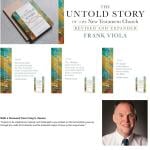Solomon says that emotions are judgments that, like many judgments, are not necessarily deliberative, articulated, or reflective. If so, why do we feel that emotions “come on” us? Solomon explains that it’s because we focus “on the feelings and flushings that typically accompany our emotional upheavals in times of crisis.” He calls this a “strategic confusion of cause and effect” that reduces to “a vehicle of irresponsibility, a way of absolving oneself from blame for those fits of sensitivity and... Read more



















